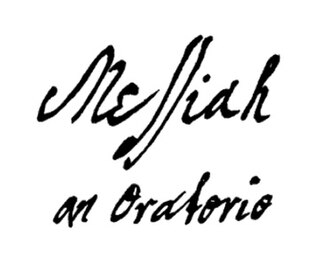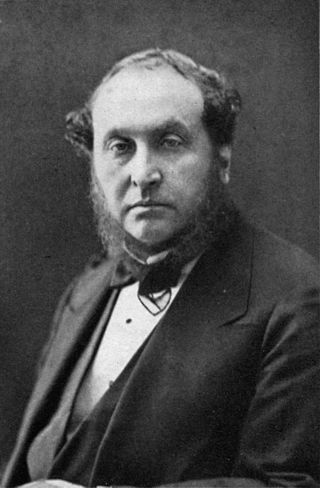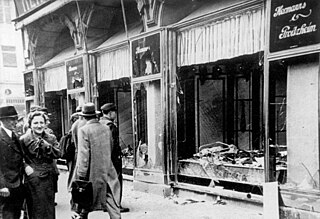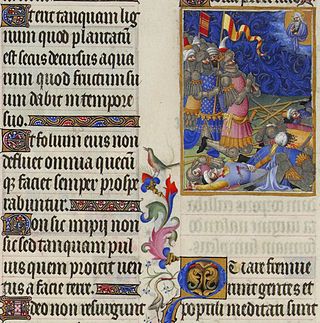
Moses Mendez, or Mendes, (1690? - 4 February 1758), was a British poet and playwright. It has been suggested that he wrote the anonymous texts for Handel's dramatic English oratorios Solomon and Susanna . [1]

Moses Mendez, or Mendes, (1690? - 4 February 1758), was a British poet and playwright. It has been suggested that he wrote the anonymous texts for Handel's dramatic English oratorios Solomon and Susanna . [1]
Moses Mendez was born to a Jewish family in London. The physician Fernando Mendes was his grandfather. After studies at the University of Oxford he followed his father's choice of career as a stockbroker and became prosperous. [2] Mendez owned an estate called St Andrew’s at Old Buckenham in Norfolk. He wrote numerous poems and stage pieces, including the libretti for ballad operas including The Double Disappointment and The Chaplet, produced at leading London theatres Covent Garden and Drury Lane in the 1740s. [3] He also wrote the text for the 1750 ballad opera Robin Hood with music by Charles Burney. It has recently been suggested that Moses Mendez wrote the unattributed texts for Handel's oratorios Susanna and Solomon, both of which had their first performances in 1749.
Mendez was a freemason, having joined the Premier Grand Lodge of England and helped organise their Grand Festival in 1738. [4]
Mendez is mentioned by the writer William Maginn (1794–1842) in his Miscellanies (published posthumously in 1885):
Vain, quite vain, the toil you spend is,
When your time in verse you pass;
For, good Mr. Moses Mendes,
You are nothing but ass [5]
Mendez married Anna Gabriella Head in 1753 but his children (James Roper Mendes Head and Francis Head) would take on the Head surname after Anna's father died in 1768. His grandson was Sir Francis Bond Head, son of James Roper.

George FridericHandel was a German-British Baroque composer well-known for his operas, oratorios, anthems, concerti grossi, and organ concertos. Handel received his training in Halle and worked as a composer in Hamburg and Italy before settling in London in 1712, where he spent the bulk of his career and became a naturalised British subject in 1727. He was strongly influenced both by the middle-German polyphonic choral tradition and by composers of the Italian Baroque. In turn, Handel's music forms one of the peaks of the "high baroque" style, bringing Italian opera to its highest development, creating the genres of English oratorio and organ concerto, and introducing a new style into English church music. He is consistently recognized as one of the greatest composers of his age.
An oratorio is a musical composition with dramatic or narrative text for choir, soloists and orchestra or other ensemble.

Messiah is an English-language oratorio composed in 1741 by George Frideric Handel. The text was compiled from the King James Bible and the Coverdale Psalter by Charles Jennens. It was first performed in Dublin on 13 April 1742 and received its London premiere a year later. After an initially modest public reception, the oratorio gained in popularity, eventually becoming one of the best-known and most frequently performed choral works in Western music.

Semele is a 'musical drama', originally presented "after the manner of an oratorio", in three parts by George Frideric Handel. Based on an existing opera libretto by William Congreve, the work is an opera in all but name but was first presented in concert form at Covent Garden theatre on 10 February 1744. The story comes from Ovid's Metamorphoses and concerns Semele, mother of Bacchus. Handel also referred to the work as 'The Story of Semele'. The work contains the famous aria "Where'er you walk".

Elijah, Op. 70, MWV A 25, is an oratorio by Felix Mendelssohn depicting events in the life of the Prophet Elijah as told in the books 1 Kings and 2 Kings of the Old Testament. It premiered on 26 August 1846.

Susanna, also called Susanna and the Elders, is a narrative included in the Book of Daniel by the Catholic Church, Oriental Orthodox Churches and Eastern Orthodox Churches. It is one of the additions to Daniel, placed in the Apocrypha by Protestants, with Anabaptists, Lutherans, Anglicans and Methodists regarding it as non-canonical but useful for purposes of edification. The text is not included in the Jewish Tanakh and is not mentioned in early Jewish literature, although it does appear to have been part of the original Septuagint from the 2nd century BC, and was revised by Theodotion, a Hellenistic Jewish redactor of the Septuagint text.

Sir Michael Andrew Angus Costa was an Italian-born conductor and composer who achieved success in England.

Classical music of the United Kingdom is taken in this article to mean classical music in the sense elsewhere defined, of formally composed and written music of chamber, concert and church type as distinct from popular, traditional, or folk music. The term in this sense emerged in the early 19th century, not long after the United Kingdom of Great Britain and Ireland came into existence in 1801. Composed music in these islands can be traced in musical notation back to the 13th century, with earlier origins. It has never existed in isolation from European music, but has often developed in distinctively insular ways within an international framework. Inheriting the European classical forms of the 18th century, patronage and the academy and university establishment of musical performance and training in the United Kingdom during the 19th century saw a great expansion. Similar developments occurred in the other expanding states of Europe and their empires. Within this international growth the traditions of composition and performance centred in the United Kingdom, including the various cultural strands drawn from its different provinces, have continued to evolve in distinctive ways through the work of many famous composers.

Theodora is a dramatic oratorio in three acts by George Frideric Handel, set to an English libretto by Thomas Morell. The oratorio concerns the Christian martyr Theodora and her Christian-converted Roman lover, Didymus. It had its first performance at Covent Garden Theatre on 16 March 1750. Not popular with audiences in Handel's day, Theodora is now recognised as a masterpiece. It is usually given in concert, being an oratorio, but is sometimes staged.

Israel in Egypt, HWV 54, is a biblical oratorio by the composer George Frideric Handel. Most scholars believe the libretto was prepared by Charles Jennens, who also compiled the biblical texts for Handel's Messiah. It is composed entirely of selected passages from the Old Testament, mainly from Exodus and the Psalms.

Saul is a dramatic oratorio in three acts written by George Frideric Handel with a libretto by Charles Jennens. Taken from the First Book of Samuel, the story of Saul focuses on the first king of Israel's relationship with his eventual successor, David—one which turns from admiration to envy and hatred, ultimately leading to the downfall of the eponymous monarch. The work, which Handel composed in 1738, includes the famous "Dead March", a funeral anthem for Saul and his son Jonathan following their deaths in the Battle of Mount Gilboa at the hands of the Philistines, and some of the composer's most dramatic choral pieces. Saul premiered successfully at the King's Theatre in London on 16 January 1739, and was revived by Handel in subsequent seasons.

Judas Maccabaeus is an oratorio in three acts composed in 1746 by George Frideric Handel based on a libretto written by Thomas Morell. The oratorio was devised as a compliment to the victorious Prince William Augustus, Duke of Cumberland upon his return from the Battle of Culloden. Other catalogues of Handel's music have referred to the work as HG xxii; and HHA 1/24.

Esther is an oratorio by George Frideric Handel. It is generally acknowledged to be the first English oratorio. Handel set a libretto after the Old Testament drama by Jean Racine. The work was originally composed in 1718, but was heavily revised into a full oratorio in 1732.

A Child of Our Time is a secular oratorio by the British composer Michael Tippett, who also wrote the libretto. Composed between 1939 and 1941, it was first performed at the Adelphi Theatre, London, on 19 March 1944. The work was inspired by events that profoundly affected Tippett: the assassination of a German diplomat by a young Jewish refugee in 1938, and the Nazi government's reaction to the assassination which was in the form of a violent pogrom against Germany's Jewish population: Kristallnacht. Tippett's oratorio deals with these incidents in the context of the experiences of all oppressed people, and it carries a strongly pacifistic message of ultimate understanding and reconciliation. The text's recurrent themes of shadow and light reflect the Jungian psychoanalysis which Tippett underwent in the years immediately before he wrote the work.

Solomon, HWV 67, is an oratorio by George Frideric Handel. The anonymous libretto – currently thought to have been penned by the English Jewish poet/playwright Moses Mendes (d.1758) – is based on the biblical stories of the wise king Solomon from the First Book of Kings and the Second Book of Chronicles, with additional material from Antiquities of the Jews by ancient historian Flavius Josephus. The music was composed between 5 May and 13 June 1748, and the first performance took place on 17 March 1749, with Caterina Galli in the title role at the Covent Garden Theatre in London, where it had two further performances. Handel revived the work in 1759.

David de Aaron de Sola or David Aaron de Sola (1796–1860) was a rabbi and author, born in Amsterdam, the son of Aaron de Sola.

Belshazzar is an oratorio by George Frideric Handel. The libretto was by Charles Jennens, and Handel abridged it considerably. Jennens' libretto was based on the Biblical account of the fall of Babylon at the hands of Cyrus the Great and the subsequent freeing of the Jewish nation, as found in the Book of Daniel.

Susanna is an oratorio by George Frideric Handel, in English. The libretto had been questionably attributed to Newburgh Hamilton but is now thought to have been penned by the poet/playwright Moses Mendes (d.1758). The story is based on that of Susanna in chapter 13 of the Book of Daniel in the Bible. Handel composed the music in the summer of 1748 and premiered the work the next season at Covent Garden theatre, London, on 10 February 1749.

Psalm 2 is the second psalm of the Book of Psalms, beginning in English in the King James Version: "Why do the heathen rage". In Latin, it is known as "Quare fremuerunt gentes". Psalm 2 does not identify its author with a superscription, but Acts 4:24–26 in the New Testament attributes it to David. According to the Talmud, Psalm 2 is a continuation of Psalm 1.

Parnasso in festa, per li sponsali di Teti e Peleo, by George Frideric Handel, is a festa teatrale, a form also called a "serenata", a type of Italian opera intended as entertainment to celebrate a festive royal or state occasion. The work was written to celebrate the marriage of Anne, Princess Royal and Prince William of Orange. Parnasso in festa had its first performance in London at the King's Theatre on 13 March 1734 and was repeated five times. The operatic entertainment, to an anonymous libretto, was such a success at its London premiere that although it was intended as a one-off production for a royal wedding, Parnasso in festa was revived by Handel in several subsequent seasons.